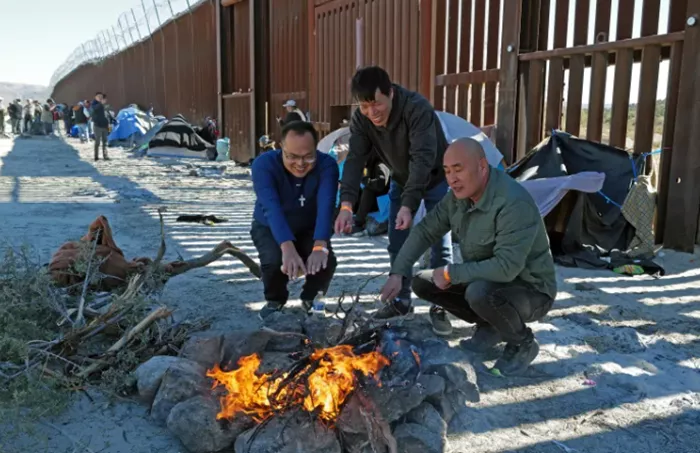President-elect Donald Trump is reportedly exploring the option of deporting immigrants to third countries, a plan that could face significant legal hurdles. According to NBC News, the proposed destinations for deported immigrants include nations like the Bahamas, Panama, Turks and Caicos, and Grenada. This would apply to immigrants from countries that refuse to accept deportees, leaving the U.S. with few options. Currently, many immigrants from these “recalcitrant” nations are released into the U.S. due to the lack of a receiving country.
While the details of the plan are unclear, Trump’s team has not commented on the legal framework behind these deportations. There are existing laws and regulations that could potentially allow the U.S. government to deport immigrants to third countries, though their legality remains uncertain.
During his first term, Trump attempted a similar approach with an “Asylum Cooperative Agreement” to send asylum seekers to Guatemala. This agreement required migrants who passed through Guatemala on their way to the U.S. to apply for asylum there before continuing to the U.S. However, the American Civil Liberties Union (ACLU) challenged the policy, and its enforcement was suspended during the pandemic after President Biden took office. The rule remains in effect, and if not rescinded by Biden, it could be used by the Trump administration to deport people to countries like those being considered now.
Another legal route for Trump could involve federal immigration laws that permit the removal of immigrants to third countries if they are deemed safe and the home country refuses to accept them. The ACLU is currently suing the Biden administration over the use of this law to deport Venezuelans to Mexico, and the outcome of that case could influence Trump’s ability to implement his plan.
Regardless of the approach, the U.S. government must ensure that immigrants are sent to countries where they are safe, as required by both U.S. and international law. Katrina Eiland, deputy director of the ACLU’s Immigrants’ Rights Project, emphasized the importance of proper screening procedures to prevent immigrants from being sent to countries where they may face persecution or torture. “Any process must include a fair procedure and adequate screening,” she said.
Recalcitrant Countries and Their Role in Deportations
The U.S. has designated certain countries as “recalcitrant” due to their refusal to accept deported citizens. As of 2020, countries like Russia, China, Cuba, and Iran were on this list. The situation has worsened in recent years, with increasing numbers of immigrants from these countries arriving at the U.S. southern border. For example, the number of Chinese nationals apprehended has skyrocketed, from under 2,000 in 2022 to over 36,000 in 2024, many fleeing economic hardship and political repression.
Additionally, Venezuela, which was not on the recalcitrant list, stopped accepting deportation flights from the U.S. in February 2024 following American sanctions. This has led to a sharp increase in Venezuelan migrants, with more than 300,000 encounters reported in fiscal year 2024. These individuals could become targets for deportation under Trump’s proposed plan.
Legal Challenges and Future Prospects
The success of Trump’s deportation strategy may depend on the outcome of ongoing legal battles. The ACLU’s lawsuit challenging the U.S. agreement with Guatemala argues that it lacks proper safeguards for immigrants, particularly in terms of assessing whether they would face persecution. Guatemala has one of the highest homicide rates globally, and the U.S. State Department has issued travel warnings for the country. Under both U.S. and international law, individuals cannot be deported to places where they may face harm.
It remains unclear whether similar legal challenges would arise if the U.S. brokers deportation agreements with countries like the Bahamas, Panama, or Grenada. In the meantime, the Biden administration still has the opportunity to rescind the legal rule that would allow such deportations.
“If Biden does nothing before leaving office, the rule could remain in effect, giving the Trump administration the opportunity to sign new agreements,” Eiland warned.
In a separate lawsuit concerning the deportation of Venezuelans to Mexico, the ACLU argued that such actions violate international law. If courts rule in Biden’s favor, this could grant Trump the legal authority to use similar methods to deport immigrants from other recalcitrant countries.
As the legal landscape develops, the fate of Trump’s proposed third-country deportation plan remains uncertain.
Related topics:
- Trump Proposes Deporting Families with Mixed Immigration Status
- More Countries Simplify Visa Rules to Draw Indian Tourists
- Haitian Immigrants and Supporters Stand Firm Amid Trump’s Threats, Preparing for the Fight Ahead


